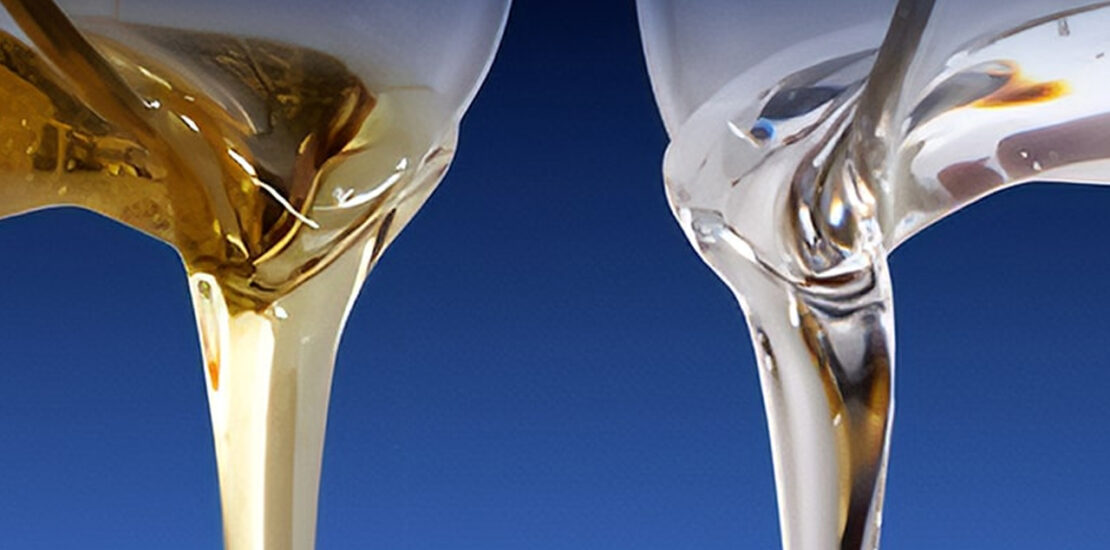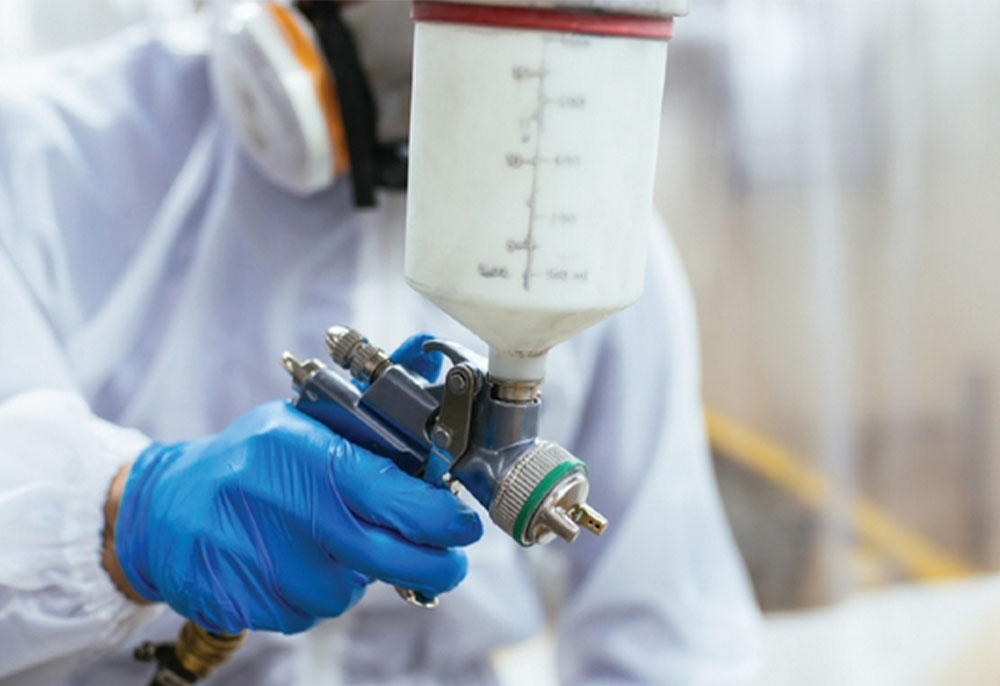- July 23, 2023
- Posted by: Kirit Patel
- Category: Epoxy

What is Epoxy paint?

Epoxy paint is a type of paint that contains epoxy resins as a key component. Epoxy resins are a class of synthetic polymers known for their high strength, durability, and resistance to chemicals and moisture. When used in paint form, epoxy resins create a tough, protective coating that adheres well to various surfaces, making it a popular choice for many applications.
Why it’s used as a corrosion resistance paint?
- Durability: Epoxy paint forms a hard and durable surface that can withstand heavy wear and tear, making it ideal for high-traffic areas.
- Chemical resistance: Epoxy paint is highly resistant to chemicals, including acids, solvents, and various cleaning agents. This makes it suitable for use in industrial settings, garages, and workshops.
- Moisture resistance: Epoxy paint is impermeable to water, making it suitable for use in damp or humid environments, such as basements, bathrooms, and pool areas.
- Adhesion: Epoxy paint has excellent adhesion to a wide range of surfaces, including concrete, metal, wood, and some plastics.
- Versatility: It can be used both indoors and outdoors, depending on the specific product and application requirements.
- Aesthetics: Epoxy paints are available in various colors and finishes, including glossy, semi-glossy, and matte, allowing for decorative as well as functional applications.
Common uses of epoxy paint include:
- Floor Coatings: Epoxy floor coatings are widely used in industrial facilities, commercial buildings, garages, and warehouses due to their durability and resistance to chemicals, oils, and abrasion.
- Marine Applications: Epoxy paint is often used in the marine industry to protect boats, ships, and other watercraft from water damage and corrosion.
- Structural Steel Coatings: Epoxy paint is applied to structural steel to protect it from corrosion, especially in bridges, pipelines, and other infrastructure.
- Automotive Industry: Epoxy paint is used in automotive refinishing and repair to provide a long-lasting and durable finish on cars and other vehicles.
- Concrete Sealing: Epoxy coatings are used to seal and protect concrete surfaces, such as garage floors, driveways, and industrial floors.
- Tank and Container Coatings: Epoxy paint is applied to tanks and containers to prevent corrosion and chemical damage.

When using epoxy paint, it is essential to follow the manufacturer’s instructions for proper preparation, application, and safety measures, as the application process may involve mixing specific ratios of resin and hardener before application. Additionally, ensure proper ventilation when working with epoxy paint, as it may emit strong odors and potentially harmful fumes during the curing process.
What are the Advantages and Disadvantages of Epoxy Paint?
Advantages :
Epoxy paint offers several advantages that make it a preferred choice for various applications. Some of the main advantages of epoxy paint include:
- Durability: Epoxy paint creates a tough and resilient surface that can withstand heavy use, abrasion, and impact. It is highly resistant to chipping, peeling, and cracking, making it ideal for high-traffic areas and surfaces that endure significant wear and tear.
- Chemical Resistance: Epoxy paint exhibits excellent resistance to a wide range of chemicals, including acids, solvents, oils, and cleaning agents. This chemical resistance makes it suitable for use in industrial settings, warehouses, garages, and other environments where exposure to harsh substances is common.
- Moisture Resistance: Epoxy paint is impermeable to water, preventing moisture from seeping into the substrate. It is particularly beneficial in areas prone to dampness or humidity, such as basements, bathrooms, and kitchens.
- Adhesion: Epoxy paint forms a strong bond with various surfaces, including concrete, metal, wood, and some plastics. This strong adhesion ensures that the paint stays securely in place, providing long-lasting protection.
- Versatility: Epoxy paint can be used for a wide range of applications, both indoors and outdoors. It is suitable for floors, walls, ceilings, and various other surfaces, offering a versatile solution for different projects.
- Easy to Clean: The smooth and non-porous surface of epoxy paint makes it easy to clean. Spills and stains can be wiped off effortlessly, making it an excellent choice for environments where cleanliness is essential.
- Aesthetics: Epoxy paint is available in various colors and finishes, allowing for decorative applications. The glossy or high-gloss finish can enhance the visual appeal of surfaces, making it popular for both functional and decorative purposes.
- Longevity: When properly applied and maintained, epoxy paint can last for many years without significant deterioration. Its resistance to damage and chemicals contributes to its long-lasting performance.
- Quick Curing: While epoxy paints may have longer curing times compared to traditional paints, they often dry relatively quickly, allowing for faster recoating or foot traffic in a shorter period.
- Safety Benefits: Epoxy coatings can be formulated with additives to provide non-slip properties, making them safer for use in areas where slips and falls are a concern, such as ramps, walkways, and industrial floors.
- Corrosion Protection: Epoxy paint can protect metal surfaces from corrosion, helping to extend the lifespan of structures, equipment, and vehicles.
Due to these advantages, epoxy paint is commonly used in industrial facilities, commercial buildings, garages, laboratories, healthcare facilities, and residential spaces where its unique properties can offer long-lasting protection and visual enhancement. However, it’s essential to follow the manufacturer’s instructions and guidelines to ensure successful application and optimal performance.
Disadvantages :
While epoxy paints have numerous advantages, they also come with certain disadvantages that you should consider before using them for your project. Some of the main disadvantages of epoxy paint include:
- Cost: Epoxy paints tend to be more expensive than traditional paints. The higher cost is primarily due to the specialized formulation and the use of epoxy resins, which are relatively costly compared to other paint ingredients.
- Complex Application: Applying epoxy paint can be more complicated than using regular paint. It often involves mixing two or more components, such as epoxy resin and a hardener, in specific proportions. Proper surface preparation and application techniques are crucial for achieving a successful and long-lasting finish.
- Limited Pot Life: Epoxy paints have a limited pot life, which means they must be applied within a specific time frame after mixing the components. Once the pot life expires, the paint becomes unusable, leading to wastage if not properly managed.
- Curing Time: Epoxy paints typically have a longer curing time compared to regular paints. They require several hours or even days to fully cure, depending on environmental conditions. This can be a disadvantage when quick turnaround times are necessary.
- Vulnerability to UV Exposure: Some epoxy paints are not UV-resistant and can degrade or discolor when exposed to sunlight over time. This limitation restricts their use for outdoor applications unless they are specifically formulated with UV-resistant properties.
- Brittleness: Epoxy coatings can be relatively brittle compared to other types of paints. On flexible substrates or surfaces subject to significant movement, epoxy paint may crack or delaminate if not properly applied or if the substrate experiences movement over time.
- Slippery Surface: Some epoxy paints can create a smooth and glossy surface that may become slippery, especially when wet. This can be a safety concern in certain environments, such as garages or industrial settings.
- Environmental and Health Concerns: The application of epoxy paints may release volatile organic compounds (VOCs) and other potentially harmful chemicals into the air. Adequate ventilation and safety precautions are essential during application to avoid exposure to these substances.
- Limited Color Options: While epoxy paints are available in various colors, the range of color choices may be more limited compared to traditional paints, especially when looking for custom or specific shades.
Despite these disadvantages, epoxy paint remains a popular choice for specific applications due to its excellent durability, chemical resistance, and adhesion properties. Before using epoxy paint, carefully evaluate your project’s requirements, and consider the advantages and disadvantages to determine if it is the right choice for your needs.
